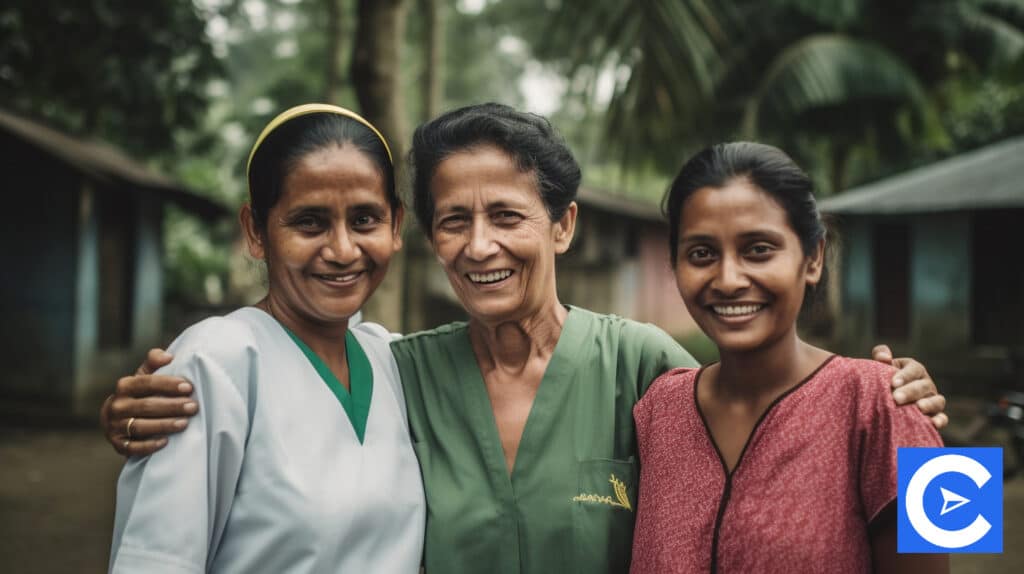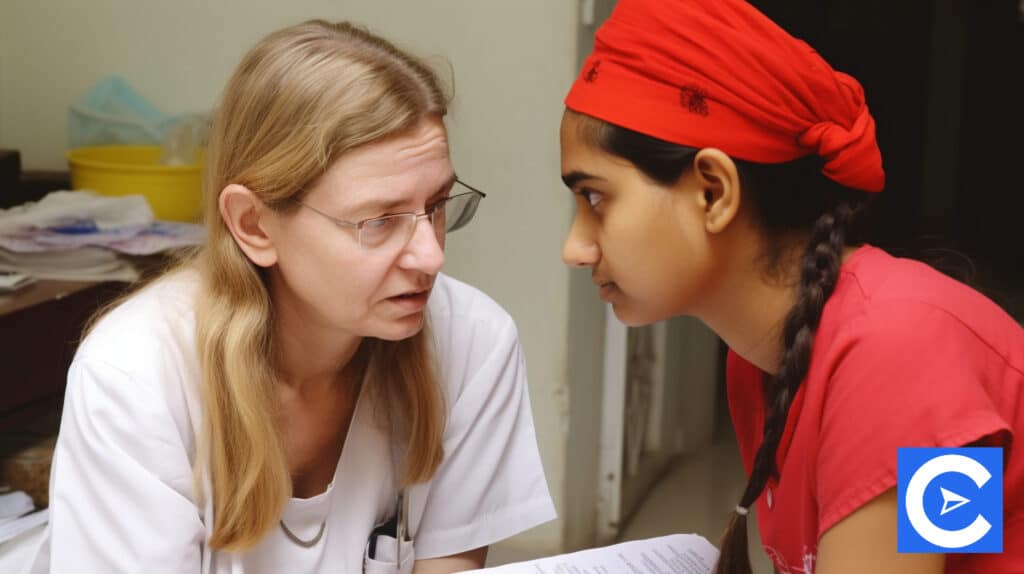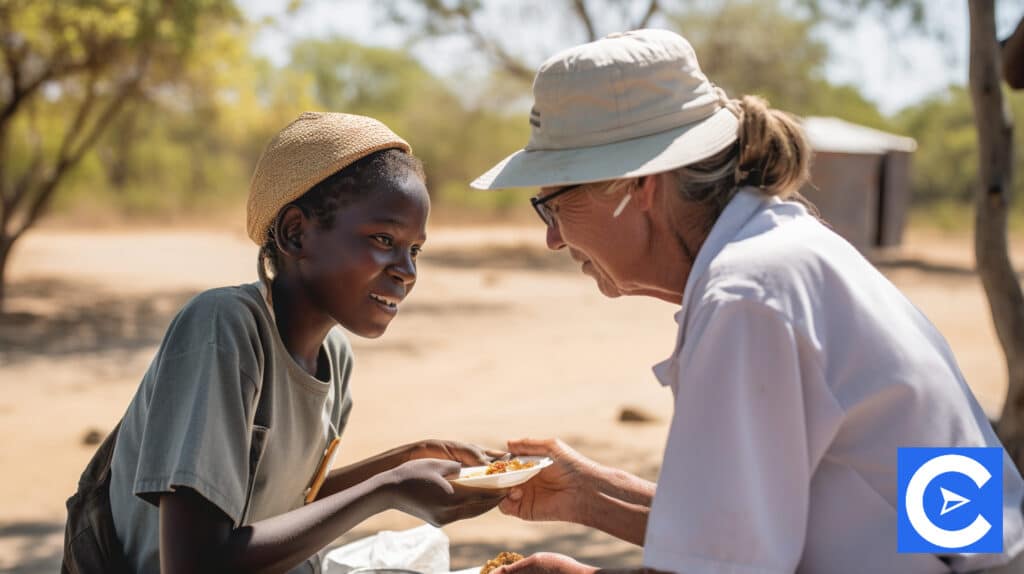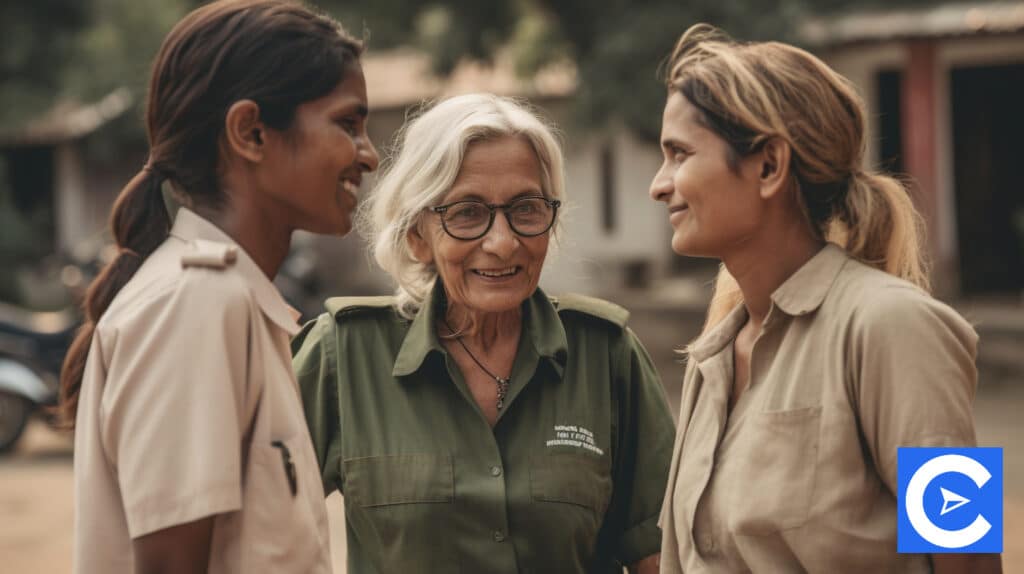Hello readers! We are here with an article to enlighten you with details about Rural Nursing.
The healthcare sector thrives on caregivers like Nurses, and Rural Nurses are one of those important jobs in the US.
By the end of this article, you will know about the rural nursing profession, the specializations required to pursue the career, and the benefits and earnings the rural nursing profession offers.
In this article, we will cover:
- Overview of Rural Nurses
- How to become a Rural Nurse
- Rural Nurses Responsibilities
- Specialization to become a Rural Nurse
- Benefits and earnings opportunities Rural Nurses get
So to gain knowledge and understand the rural nursing field better, keep reading on!
Rural Nurses – An Overview

The term itself is self-explanatory. Rural Nurses are the Nurses that work in rural areas.
Rural areas or rural communities are usually sparsely populated.
However, these areas have a close-knit community where most people are acquainted with each other.
Healthcare providers in rural areas are usually fewer, and rural hospitals are commonly understaffed.
This leads to staffing being an issue for the rural hospital.
Rural Nurses are best explained as generalists.
They do not have any specialization.
Though, they are jacks of all trades.
They are trained to deal with any kind of situation or emergency.
Rural settings, unlike urban areas, do not have great infrastructure and health care systems.
This leads to health disparities between the rural populations and their urban counterparts.
Rural Nurses turn out to be a blessing in such areas.
How to Become a Rural Nurse

A Rural Nurse, as explained, isn’t a nurse that has a specialization.
Instead, these Nurses are like other RNs who get a bachelor’s degree or BSN from an accredited nursing school.
There are very few to almost no nursing programs targeted specifically toward Rural Nurse training or nurse education.
Therefore, the Rural Nurse simply means the Nurse with the same Bachelor of Science in Nursing as any of their counterparts.
If someone aims to become a Rural Nurse, they will get the same education and training as an Urban Nurse.
The only difference will be that there will be no specialization for them; they will have to know a bit of everything.
What are Rural Nurses’ Responsibilities?
Rural Nurses, like any other of their counterparts from the same field, Rural Nurses have a lot of responsibilities.
They might even have more responsibilities than the nurses of big hospitals.
To deal with such situations, the nurses in rural communities have the following responsibilities:
- Evaluation
- Diagnosis
- Primary care
- Family care
- Critical care skills
- Patient management
- Staff management
- Knowledge about pharmaceuticals and medicines
- Critical thinking
- Physical therapy
- Taking patients history
- Test samples like drawing blood
- Prescribing medicines
- Admittance and discharge of patients
- Follow up with patients who have chronic or severe illnesses
There are many more such responsibilities.
It won’t be wrong to say that a Rural Nurse has all public health responsibilities in a rural healthcare setup.
They will also need to know how to deal with critical situations, like strokes or mild flu.
Why do Doctors and Nurse Practitioners avoid rural settings?

Nurse Practitioners are Senior Nurses who mostly have done a master of Science in Nursing and serve in hospitals carrying out major important roles and responsibilities.
Registered Nurses, on the contrary, have basic BSN or bachelor’s degrees.
Doctors are as well known, MBBS at the basic and may also have different specializations to serve a specific field.
Mostly all the three medical staff avoid serving the rural communities.
There are reasons behind this decision; let’s read about those reasons:
- Rural areas suffer from a major lack of facilities
Major facilities are not available compared to the big city.
- Healthcare professionals tend to avoid health centers that are under-staffed
The main reason is over-exhaustion as the available staff bears all the responsibilities on their shoulders.
- The nursing staff thinks nursing practice needs to be done at a well-established healthcare facility
This is mainly so that they learn from specialized personnel to help them decide which specialization they want to take up if any.
- Nurse Practitioners want to work in well-paid healthcare facilities
- Nurse Practitioners or Registered Nurses want a greater chance of growth, like becoming Nurse Educators
They need to have closer access to colleges offering nursing education.
This is not possible in many remote areas as the travel distances are very long.
Do Rural Nurses Need Specialization

Rural Nurses serve rural communities.
The main issue in rural areas is an acute shortage of medical staff.
This leads to a greater emphasis on the capabilities of the nurses serving there.
Many doctors or Nurse Practitioners are not ready to go to remote or rural areas.
This is because of various reasons mentioned above.
This increases the health disparities for the rural communities and the locals.
It is assumed that Rural Nurses require a lot of knowledge and critical thinking ability.
This is correct, and they do need to have the ability to think critically and act fast as the patient may mostly be only their responsibility, unlike the urban settings.
The urban healthcare facilities are well-equipped to deal with any sort of issue.
They have different departments to deal with different problems.
For example, there would be a pediatrician department to deal with issues and diseases related to kids; this is not the case in a rural healthcare center.
The Rural Nurses may be the only healthcare providers in the rural setting, and they will have to have the ability to deal with all ages and all kinds of issues.
Health services in rural areas have limited resources and usually don’t even pay well.
So the staffing is limited, and medicare is a crucial facility provided to the locals.
This all leads to Rural Nurses having no specialization but lots of experience and ability to treat many different diseases, unlike their urban counterparts.
A basic Bachelor of Science in Nursing degree is adequate to become a Rural Nurse.
They do not have to go for higher education like DNP or MSN.
Though, if they will, they can do these degrees, they are free to do so.
Benefits to Rural Nurses

Currently, there is a lot of work going on in different states of the US to make the rural nursing job more attractive.
As a result, many benefits are being offered in different states and different rural areas.
The Rural Nurse organization has maintained contact with the national rural health association to facilitate the current Rural Nurses.
Rural Nurses already feel deprived of many basic facilities offered to their urban peers.
They also feel overburdened and exhausted.
Especially during the pandemic, it wasn’t easy for many of them to be the sole caretaker of hundreds of people belonging to different age groups.
There are still a few benefits given and worked upon by the national rural health association.
- Nursing student loans are being repaid by the healthcare facility, removing a big burden off the shoulders of the nurses
This improves retention in rural healthcare facilities.
- Rural Nurses are also shown career mobility possibilities
If the nurses are already in that location, to attract them to the healthcare center, the healthcare center may advertise the options for career growth.
- Cross-training opportunity is another great advantage
The Rural Nurses get to learn from a lot of different departments.
As a result, they have more knowledge than a normal Registered Nurse in an urban healthcare setting.
- Patient care is diverse, and the nurse keeps learning with time
- There is no one to answer to
There are no proper doctors to look over and judge the nurse’s capabilities in most healthcare centers.
This makes the rural nurse feel empowered and important.
- Dental and medical coverage is a great benefit to rural nurses
- Rural Nurses are also provided with paid leave and holidays to have a healthy work-life balance
- Rural Nurses also become close to rural communities
They are more like family and friends rather than patients and care providers.
Are Travel Nurses and Rural Nurses the same?

No, they are not the same. Their tasks differ in their nature as well as period.
A Rural Nurse can also be a Travel Nurse if they need to go to another place to treat a special case or if they are needed there for some time.
However, a Travel Nurse can not be a Rural Nurse, as to be so, they will have to have a deeper knowledge and more intense critical thinking and critical care skills.
Travel Nurses travel to different locations, and their tasks are based on assignments.
Therefore, their postings may be for a limited time only.
On the other hand, the Rural Nurses stay in the rural areas and provide services for a longer time.
They do not serve for a specific task or disease only.
Both Travel Nurses and Rural Nurses have different responsibilities, but they may work alongside each other if the need arises.
How Do Rural Nurses Deal with Critical Conditions?

Being in a rural setting, all age groups and people may not be much literate.
Therefore, it is a challenging job to provide service as a Rural Nurse.
Rural Nurses have the responsibility of handling many situations single-handedly.
In rural areas, people do not have the facilities of the urban settings.
Therefore, people tend to put off medicare due to a lack of medical facilities like pharmacies or good insurance services.
Some people also avoid consulting a healthcare professional just because of the cost of the treatment.
There are not many medicinal options available, so the nursing staff must mix medicines to cure some illnesses.
However, when there is a critical condition on hand, there are a few ways to deal with it.
- Telehealth, the rural nurses, may have to employ this service
They will have to contact a specialized doctor through phone or video conference to treat the patient at hand.
This takes time and may or may not be accurate.
- Transferring the patient to the nearest big hospital
This is expensive. At times the patient is also transferred using a helicopter ambulance.
If the patients under care don’t have good insurance, they may have to bear the cost of transportation, which can be huge.
To avoid these costs, the patients think it better to neglect their illnesses and stay at home.
- Community health is a foreign concept in many rural areas
Rural Nurses find this responsibility on their shoulders to educate the community about the serious concerns that may arise if not treated on time.
How Much Do Rural Nurses Earn?

One of the main reasons nurses are not attracted to serving rural settings is low pay compared to urban settings.
This has now been considered by the national rural health association (NRHA).
Major steps are being taken to improve this situation.
Rural Nurses have more responsibilities than any Registered Nurse practicing in an urban healthcare facility, so they need to be compensated well.
Some factors determine the income of a Rural Nurse:
- Their post is the same as a Registered Nurse or a Nurse Practitioner
The Nurse Practitioner will get paid better than a Registered Nurse.
This is because the Nurse Practitioner has more expertise and responsibilities.
- Rural Location: If the rural area is a remote area that is hard to reach and in the middle of nowhere, the Nurses will be higher paid as the healthcare center will try to retain them
Finding a new Rural Nurse can be a headache for them.
- The employer: If the employer is a healthcare facility or a rural health clinic linked with the state healthcare department, they will pay well
- Rural practice: The Nurse will have to deal with all the home remedies that the rural community would prefer rather than getting checked by a Health Nurse
They will be ready to try some nostrums instead of taking medical advice from a Practicing Nurse.
Conclusion

A Rural Nurse is a respectable position like all the other medical-related specializations.
However, they need more attention and concern because of the nature of the job.
Rural Nurses face many challenges and are often paid less, but they still strive to perform their best and facilitate their patients to the best of their capacity.
FAQs

What do Rural Nurses do?
This question has many answers. Rural Nurses have many responsibilities, and they are sometimes solely in charge of delivering good medical facilities to the rural locations and the community. However, the Rural Nurse is meant to take care of the entire community, which may consist of a few thousand people.
Why do Nurses choose Rural Nursing?
Some may choose Rural Nursing because it is their native town, so they feel obligated to serve their community. Others may join Rural Nursing for other factors, like their student loan will be reimbursed by the employment center, the paid leaves are attractive, their medical and dental coverage may be good, etc.
Are there many Rural Nursing jobs?
Yes, there are many rural nursing vacancies that still need to be filled. Unfortunately, as not many people are ready to choose rural life, there is always a lack of available nursing staff. This is also the main reason healthcare centers in rural locations are understaffed, and their team is overworked.
Should Rural Nurses expect any betterment in terms of benefits?
Yes. The national rural health association and the Rural Nurse organization have been working to make a few positive changes for the Rural Nurses. This leads to becoming an attractive profession and department for upcoming nurses, though there are still many challenges they would face due to the location.
Is Nursing in rural areas challenging?
Of course! Nursing in rural locations is much harder than nursing in urban locations. There are a few factors contributing to it. Factors like limited resources, lack of facilities, low staff, lack of specialization, and patients not willing to cooperate are a few of the biggest factors.









